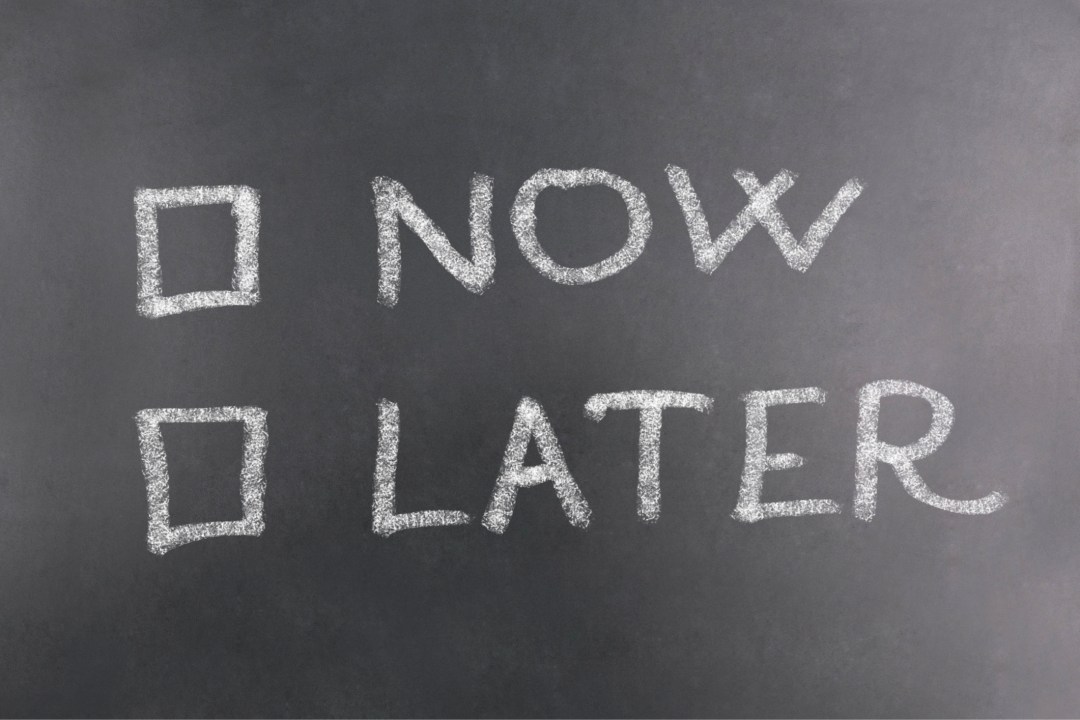Can you overcome procrastination?
In this month's Work Life Lab Experiment, Oliver Burkeman invites you to try out a new work routine to help you see if you can teach yourself to stop putting things off

We all know the horrible purgatory of procrastination – that in-between state in which you’re neither getting work or chores done, nor enjoying a true break. Too often, we respond with self-criticism, hoping to get motivated by persuading ourselves how important it is to get going.
But then that backfires: when you build up a task’s importance in your mind, it grows more intimidating, not less – so you procrastinate even further, until a deadline finally forces you to act in a rush, which in turn, often results in substandard work.
A smarter approach to procrastination involves two tactics: first, making tasks smaller and thus less intimidating; and second, letting go of the need to feel motivated before you can act.
The theory
When you’re mired in procrastination and relying on sheer willpower to push through it, you’ll usually fail. Willpower uses energy and quickly gets depleted, while your subconscious mind has countless tricks to sabotage your conscious plans. Instead, productivity coach Mark Forster suggests ‘burst working’ – using a kitchen timer or your smartphone, work on the dreaded task for five minutes, followed by five more – or maybe even 10 – on some more enticing work, or even just on Facebook or something else pleasurable. Then repeat, lengthening the periods of work if you can.
In a similar vein, but more radically, you could create what psychologist Dr Neil Fiore calls an ‘Unschedule’. Make a chart showing every hour of the week (or weekend if you work a 9-5 job), then schedule in several chunks of enjoyable leisure, or ‘guilt-free play’. Add in meals, sleep, family duties, commuting, and so on. When you see how little time is left for work, you will feel a greater sense of urgency, while the prospect of pre-planned fun should make you resent work less.
Finally, remember this powerful phrase, which is adapted from the author Julie Fast: you don’t have to feel like doing something in order to do it. Rather than trying to ‘get motivated’, accept your negative feelings and focus on simple actions instead: turn on the laptop, pick up the phone. Motivation will frequently follow soon after.
Try this
This month, find a timer or countdown app you like using, and ask yourself which tasks you’re resisting most fiercely; then spend at least one morning or afternoon attacking them in bursts, alternating the undesirable items with something more fun. If you struggle more seriously with procrastination, make an Unschedule for a week. Next time you find you’re berating yourself internally for not doing what you should, remind yourself that it’s fine to feel bored, hostile or annoyed.
You don’t need to stamp out those feelings. Instead, pick one physical action – one that involves your limbs – and do that. Even tasks that don’t seem physical (like generating new ideas or decision-making) can be broken down into physical ones (‘open the file’, ‘make a list’). That’ll often be enough to sneak past the forces of procrastination – a far better strategy than trying to fight them.
Oliver Burkeman is the author of The Antidote: Happiness For People Who Can’t Stand Positive Thinking (Canongate, £8.99)
More inspiration:
Sign up for our Life Labs Practical Wisdom online course How to Achieve Your Goals here. You can also try a free taster of the course here









